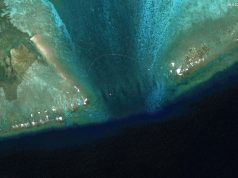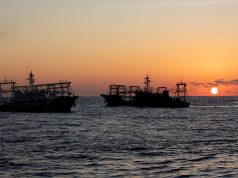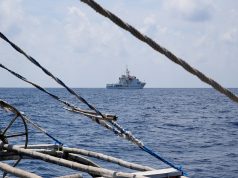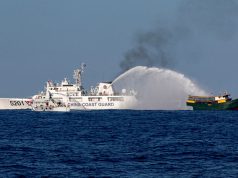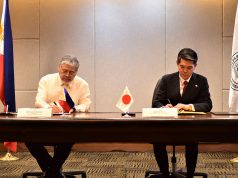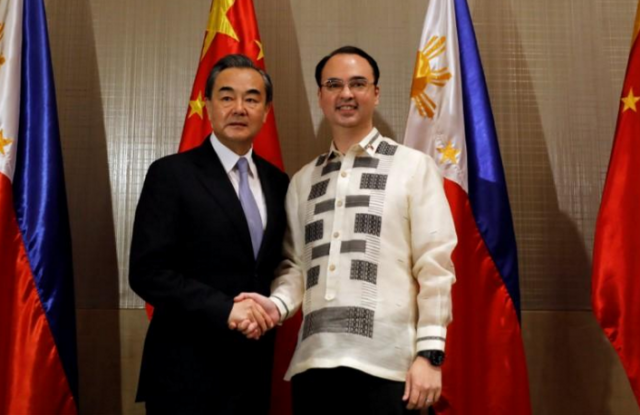
MANILA – China’s foreign minister on Tuesday said he supported the idea of joint energy ventures with the Philippines in the disputed South China Sea, warning that unilateral action could cause problems and damage both sides.
Wang Yi, on a two-day visit to Manila, made the remarks after President Rodrigo Duterte on Monday said a partner had been found to develop oil fields and exploration and exploitation would restart this year.
Duterte did not identify the partner. The energy ministry on July 12 said drilling at the Reed Bank, suspended in 2014, might resume before year-end, and the government was preparing to offer new blocks to investors in bidding in December.
“In waters where there are overlapping maritime rights and interests, if one party goes for unilateral development, and the other party takes the same action, that might complicate the situation at sea,” Wang told a news conference. “That might lead to tension, and as the end result, nobody would be able to develop resources.”
The Philippines suspended energy activities while awaiting a ruling in a case by the Permanent Court of Arbitration in the Hague. When it ruled a year ago, the court invalidated China’s claim to sovereignty over most of the South China Sea, through which more than $5 trillion of seaborne goods passes each year.
Anglo-Fillipino survey ship harassed
Beijing’s harassment of a survey ship of an Anglo-Filipino consortium in the Reed Bank in 2011 and its control of Scarborough Shoal in 2012 were among the reasons Manila filed the arbitration case, which China refuses to recognize.
The tribunal clarified Philippine sovereign rights to access offshore oil and gas its 200-mile Exclusive Economic Zone (EEZ), within which the Reed Bank is located.
The Philippines relies overwhelmingly on imports to fuel its fast-growing economy and needs to develop indigenous energy resources. Its main source of natural gas, the Malampaya field near the disputed waters, will be depleted within a decade.
Philippine Foreign Secretary Alan Peter Cayetano said the proposal to jointly develop resources in the disputed waters began in 1986, but the two countries “had not found wisdom to be able to push through to the next step”.
Experts say setting up such an arrangement would be extremely complex and politically sensitive. Both countries claim the oil and gas reserves, and a deal on sharing could be seen as legitimizing the other side’s claim, or giving away sovereign territory.
Wang also said China and Southeast Asian countries were firming up a maritime code of conduct framework, showing the world they could handle differences.
However, in a veiled reference to the United States, he said it was important for regional friends to stand up to outside interference.
“If there are still some non-regional forces in the region, they don’t want to see stability and want to stir up trouble, we need to stand together and say ‘No’ to them together,” he said.
In the latest confrontation, Chinese fighter jets intercepted a US Navy surveillance plane over the East China Sea at the weekend, according to US officials.
Click and watch the related report from a Bloomberg TV Philippines broadcast, below:




